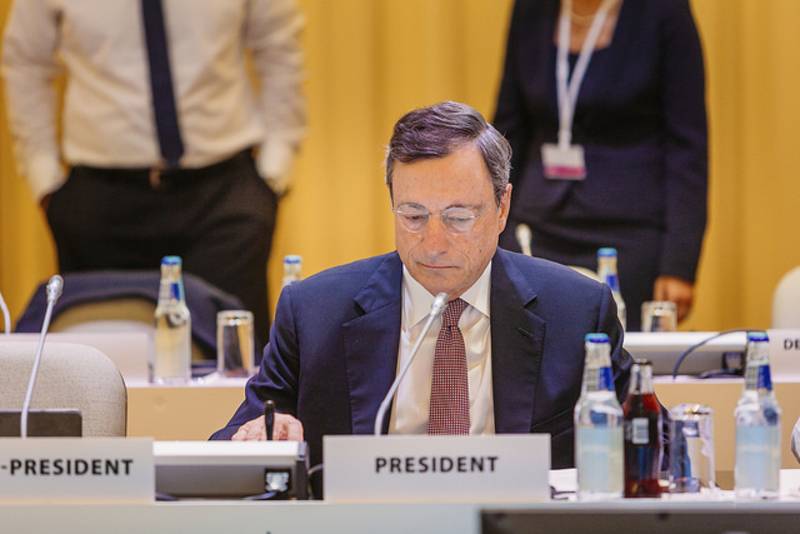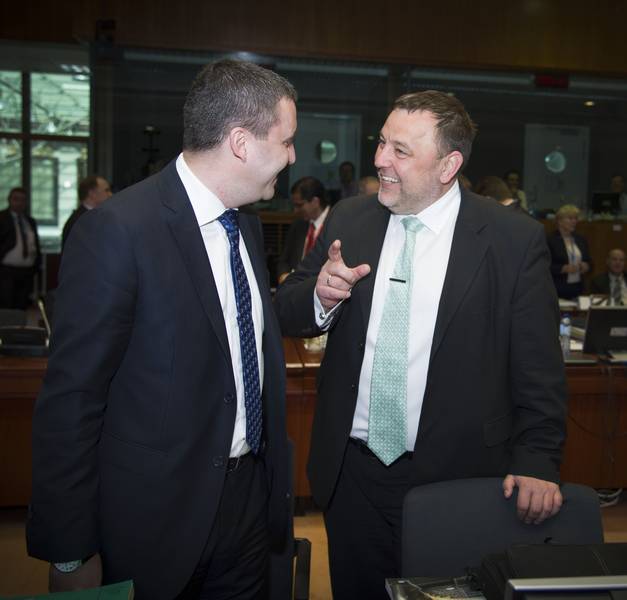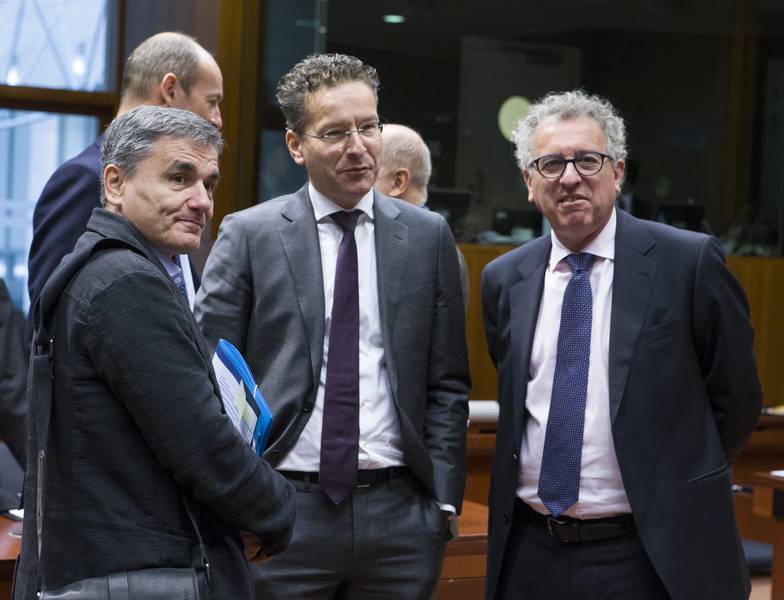Will banks pay for the crisis?
Ralitsa Kovacheva, April 23, 2010
 Financial institutions are threatened to pay dearly for the crisis if politicians go all the way in seeking revenge on behalf of taxpayers. This is getting clear from a confidential report of the International Monetary Fund (IMF), published by the BBC News upon a request of the G20 leaders for their summit in June. The document is now available to the governments and is supposed to be discussed by the Group’s finance ministers at their meeting on April 22-23 in Washington.
Financial institutions are threatened to pay dearly for the crisis if politicians go all the way in seeking revenge on behalf of taxpayers. This is getting clear from a confidential report of the International Monetary Fund (IMF), published by the BBC News upon a request of the G20 leaders for their summit in June. The document is now available to the governments and is supposed to be discussed by the Group’s finance ministers at their meeting on April 22-23 in Washington.
The idea of the proposal is the finance sector to pay the costs of future rescue packages, which in the current crisis were paid by the governments and respectively - by the taxpayers. According to the BBC News, the global proposal of the IMF is "more radical" than expected by most, that it is likely to horrify banks and also to prove politically explosive both domestically and internationally.
The IMF proposes two forms of contribution from the financial sector:
“A “Financial Stability Contribution” (FSC) linked to a credible and effective resolution mechanism. The main component of the FSC would be a levy to pay for the fiscal cost of any future government support to the sector. This component could either accumulate in a fund to facilitate the resolution of weak institutions or be paid into general revenue. The FSC would be paid by all financial institutions, with the levy rate initially flat, but refined over time to reflect institutions’ riskiness and contributions to systemic risk”.
Additionally, the IMF proposes a “Financial Activities Tax” (FAT) levied on the sum of the profits and remuneration of financial institutions, and paid to general revenue.”
The report explicitly says that the new taxes must be paid by all financial institutions and not only by the banks. Otherwise, activities currently carried out by banks would be reclassified as, for example, insurance or hedge-fund services to escape the levies.
The IMF proposals are based on national measures, considered or introduced so far by some countries, which are of two main types: “levies on selected financial sector claims, and taxes on bonuses”. The United States president Barack Obama has proposed a Financial Crisis Responsibility (FCR) fee to recover intervention costs. The FCR fee is estimated to raise $90 to $117 billion over a 10 to 12 year period. The United Kingdom and France have introduced temporary bonus taxes.
The German government is working on a bill providing new bank levy, that should be collected in a special Stability Fund. The cash will be used only to finance future restructuring and liquidation measures. The amount to be paid by each bank will be determined by the risk it poses to the system as a whole.
A curios detail is that at the meeting of the German government on March 31, when the main points of the new levy were marked, for the first time ever a French minister attended the session - the Finance Minister Christine Lagarde. As a result A joint Franco-German policy paper has been adopted on international financial market regulation. It provides for joint liquidation mechanisms for institutions that can no longer be saved, as well as for levies, the amount of which will depend on the level of risk for the system posed by any individual institute. The German proposal for bank rescue fund was also supported by the United Kingdom.
As a whole the European Union stays behind the idea of national rescue funds to  support troubled financial institutions instead of governments and people to do that. "We agree with the polluter pays principle", the Spanish finance Minister Elena Salgado emphasized after the informal meeting of the European finance ministers on April 16-17 in Madrid. The President of the European Central Bank, Jean-Claude Trichet warned that imposing the new bank levies should be done carefully and must not interrupt the efforts for global financial reform. He said that the "proper timing of eventual measures" is the "main message of the European central banks".
support troubled financial institutions instead of governments and people to do that. "We agree with the polluter pays principle", the Spanish finance Minister Elena Salgado emphasized after the informal meeting of the European finance ministers on April 16-17 in Madrid. The President of the European Central Bank, Jean-Claude Trichet warned that imposing the new bank levies should be done carefully and must not interrupt the efforts for global financial reform. He said that the "proper timing of eventual measures" is the "main message of the European central banks".
The key word is regulation, the IMF emphasized too: “Measures that impose new costs on financial institutions will need to reflect and be coordinated with regulatory changes under consideration. This is critical for ensuring policy coherence, enabling market participants to plan accordingly, and avoiding adverse effects on economic growth from placing an excessive burden on the financial sector.”
The measures would work only when there is a common decision and full coordination. Otherwise institutions would simply choose jurisdictions with less tough financial regulation.
Moreover, there is a risk such reinsurance to encourage banks to undertake even greater risks. For this reason, the Fund linked its proposal for a “crisis” levy to the creation of a bank regulation that would help weak institutions go out of business without causing a crisis: "Any levy should be linked to an effective resolution regime to avoid the perception that the receipts would be used to support failing institutions”.
 However, the final decision will be taken by the politicians. And their wish to make banks “pay” for the crisis is obvious. This could be a sweet revenge, but it should not distract from the main objective: reform of global financial regulation. Because if nothing changes, it is an illusion, that any new crisis can only be on the account of banks.
However, the final decision will be taken by the politicians. And their wish to make banks “pay” for the crisis is obvious. This could be a sweet revenge, but it should not distract from the main objective: reform of global financial regulation. Because if nothing changes, it is an illusion, that any new crisis can only be on the account of banks.
 Mario Draghi | © ECB
Mario Draghi | © ECB Vladislav Goranov, Sven Sester | © Council of the EU
Vladislav Goranov, Sven Sester | © Council of the EU Tsakalotos, Djisselbloem, Gramegna | © Council of the EU
Tsakalotos, Djisselbloem, Gramegna | © Council of the EU